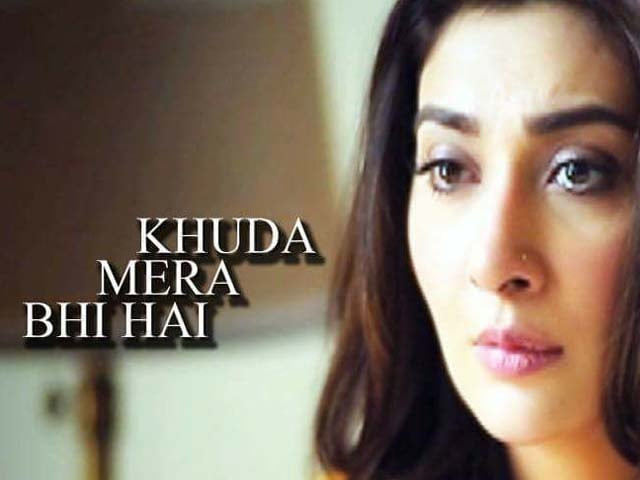Pakistani dramas are always under fire for portraying the ‘weepy woman’ and the ‘naik perveens’ that seem to have no spine or are always victimised. People tell me that I must have nerves of steel to watch dramas that are full of tears and misery.
Well, I do.
But that’s not the end of it. There is a gradual change that’s happening in the Pakistani dramasphere. Women are taking on risky roles and writers are writing scripts where women don’t have to spend at least 20 out of 24 episodes crying about their husbands and their mother-in-laws.
One recent game changer that has aired on television is Khuda Mera Bhi Hai. The play stars Aisha Khan as Mahgul, who gives birth to an intersex child. She is married to Zain (Syed Jibran) whose mother, Arshi (Irsa Ghazal) was not too happy with this match because she thought Mahgul was very ‘independent’ and ‘forward’.
Mahgul and Zain call it quits and he ends up marrying a girl who is kind of obsessed with him (Kashmala played by Hira Tareen). Mahgul decides to raise her child despite the opposition she faces from her family and friends (she is even unable to admit her son into a school because of his biological condition). Mahgul finds a friend in Mikael (Ally Khan) who happens to be a billionaire (dramatic license, indeed!) and helps Mahgul raise Noor (Furqan Qureshi). Mahgul’s friends, Sanam (Marium Saleem Nawaz), Babban Mian (Tipu) and her mother Savera (Saba Hameed) become Mahgul’s strength as she takes on this difficult but brave journey.
From the get go, the play talks about many important topics such as domestic abuse, how divorce is considered taboo, social pressures, and most importantly, the rights of transgender people and intersex individuals in the Pakistani society.
What’s great about Khuda Mera Bhi Hai is that the protagonist is an extremely strong woman who is respectful and compassionate. The writer, Asma Nabeel, did an excellent job in creating a strong and wilful character in Mahgul. She deals with her problems in a sane and intelligent manner as opposed to playing the victim and the dukhi damsel that we often see on television.
All conflicts in the play are resolved through dialogue and communication. This is perhaps one of the best parts about Khuda Mera Bhi Hai. Yes, there is physical tension present as well, and while there is a lot of emphasis on dialogue, the undertone still contains a lot of action.
Shahid Shafaat, the director, brilliantly executes difficult scenes and the lead actors leave no false notes to be scrutinised. Perhaps the only fault I found in this serial was the Game of Thrones-esque music that often plays during sad scenes and makes me think of the ‘Red Wedding’.
Khuda Mera Bhi Hai: A game changer for Pakistan’s dramasphere
She deals with her problems in a sane and intelligent manner as opposed to playing the victim we often see in dramas.

The writer, Asma Nabeel, did an excellent job in creating a strong and wilful character in Mahgul. PHOTO: FACEBOOK.


COMMENTS
Comments are moderated and generally will be posted if they are on-topic and not abusive.
For more information, please see our Comments FAQ